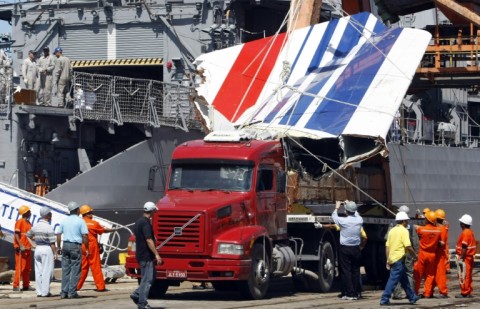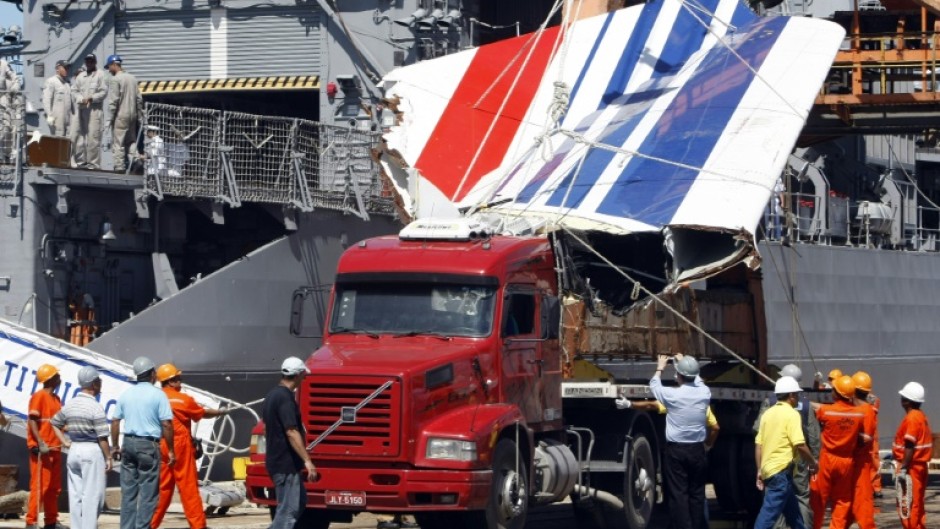
PARIS - Air France and Airbus will go on trial on Monday on charges of involuntary manslaughter over the fatal 2009 crash of a jet heading to Paris from Brazil, killing all 228 people aboard.
Victims' families and some aviation experts say the pilots were insufficiently trained to handle a loss of speed readings caused by crucial equipment freezing over in a storm.
Flight AF 447 from Rio de Janeiro plunged into the Atlantic Ocean in the early hours of 1 June 2009 after entering a zone near the Equator known for strong turbulence.
The Airbus A330 was carrying 12 crew members and 216 passengers. It was the carrier's deadliest crash.
It took nearly two years to locate the bulk of the fuselage and recover the "black box" flight recorders.
Air France and Airbus were charged as the inquiry progressed, with experts determining the crash resulted from mistakes made by pilots disorientated by so-called Pitot speed-monitoring tubes that had frozen over in thick cloud.
But investigating magistrates overseeing the case dropped the charges in 2019, a decision that infuriated victims' families.
Prosecutors appealed the decision and in 2021 a Paris court ruled there was sufficient evidence for a trial to go ahead.
The court will hear testimony from dozens of aviation experts and pilots over two months of hearings, and each company faces a maximum fine of 225,000 euros ($220,000).
There will also be analysis of the final minutes in the cockpit before the plane went into free-fall after entering a so-called "intertropical convergence zone" that often produces volatile storms with heavy precipitation.
In the cold, the Pitot tubes froze, a problem that had already been reported by other pilots -- and which were quickly replaced on planes worldwide in the months after the accident.
"We've lost our speeds," one pilot is heard saying in the flight recordings, before other indicators mistakenly show a loss of altitude, and a series of alarm messages appear on the cockpit screens.
The pilots start climbing and even though a "STALL" alert sounds, reach 11,600 metres.
The crash prompted an overhaul of training protocols across the industry, in particular to prepare pilots to handle the intense stress of unforeseen circumstances.
"I don't know what's happening," one of the pilots is heard saying as the stall begins.

